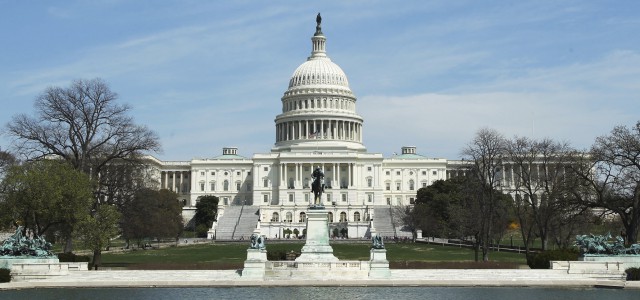
Pelosi Heads to Asia for Trade-Focused Talks
During the recent congressional recess, House Minority Leader Nancy Pelosi (D-Calif.) led a bipartisan congressional delegation on a five-nation trip to Asia. The trip’s focus is on critical issues underpinning the U.S. relations with the region, including ways the U.S. can strengthen security cooperation; advance human rights with an emphasis on women, workers and religious minorities; and increase fair trade.
In addition to Pelosi, the nine-members of the bipartisan delegation included: from the House Ways and Means Committee —which has jurisdiction over trade matters —Rep. Mike Thompson (D-Calif.) and the two most senior Democrats on the panel, Ranking Member Sander Levin (D-Mich.) and Rep. Charlie Rangel (D-N.Y.). From the House Financial Services Committee Rep. Dan Kildee (D-Mich.), who is a member of the President’s Export Council, and Rep. Mike Fitzpatrick (R-Pa.) joined the trip. Other participants are Reps. Anna Eshoo (D-Calif.) and Doris Matsui (D-Calif.) from the House Energy and Commerce Committee, and Reps. Zoe Lofgren (D-Calif.) and Mark Takai (D-Hawaii).
The scheduled stops on the trip included Cambodia, Myanmar, Korea, Vietnam and Japan; the latter two nations are among the dozen partners in the Trans-Pacific Partnership (TPP) trade deal currently under negotiation. Members were particularly keen on understanding how the TPP trade agreement will impact the region’s markets and economies. While the Obama Administration hopes to finalize the deal by this spring, the proposed trade deal has been met with skepticism from House Democrats, who have expressed concerns over transparency and its long-term impact on U.S. businesses and workers.
On April 3, the delegation met with Japanese Prime Minister Shinzo Abe, and during the meeting, Pelosi reiterated her intentions to work towards bringing her caucus to a road to “yes” on the trade deal. The U.S. and Japanese negotiators are trying to make as much progress as possible in their parallel TPP talks before Abe travels to Washington at the end of the month when he will address a joint season of Congress on April 29, making him the first- Japanese prime minister to do so. This trip was done in conjunction with ongoing trade talks on Capitol Hill, where Congress has been haggling over Trade Promotion Authority (TPA), which will restore the president’s authority to negotiate trade deals and only give lawmakers an up-or-down vote on the final bill with no amendments allowed. It was last passed by Congress in 2002 and expired in 2007.
Finance Committee Chairman Orrin Hatch (R-Utah) and Ranking Member Ron Wyden (D-Ore.) have been in talks to finalize a TPA deal, and some expect that a TPA bill could be unveiled when Congress returns from its two-week spring recess, followed by a Senate Finance Committee hearing April 15 and a markup on April 21 The White House is seeking quick movement on the bill, hoping to then expedite congressional consideration of the sprawling Asia-Pacific trade deal.
During their two-day visit to Vietnam the group of lawmakers met with American and Vietnamese business leaders, labor experts and activists, and human rights activists and representatives from Vietnamese civil society. That same day, they met with National Assembly Chairman Nguyen Sing Hung where they discussed increased U.S.-Vietnam engagement, following up on President Barack Obama and President Truong Tan Sang’s Comprehensive Partnership agreement. Later, the delegation met with Deputy Prime Minister/Foreign Minister Pham Binh Minh to discuss security cooperation issues in light of the 20th anniversary of the normalization of U.S.-Vietnam relations.
The overall goal of the trip was to work to further cement the security and economic partnership between the United States and the Asian-Pacific region.


COMMENTS